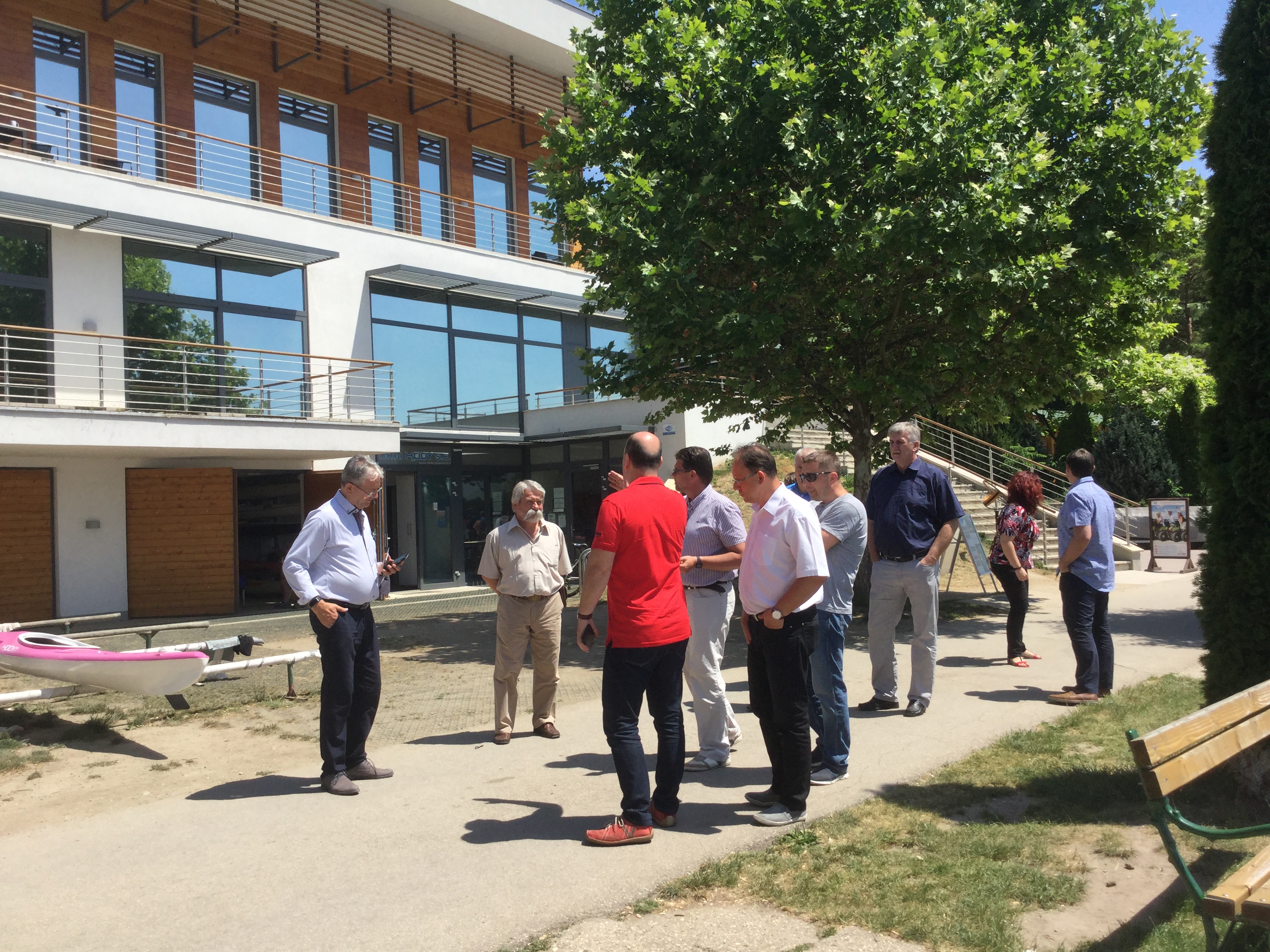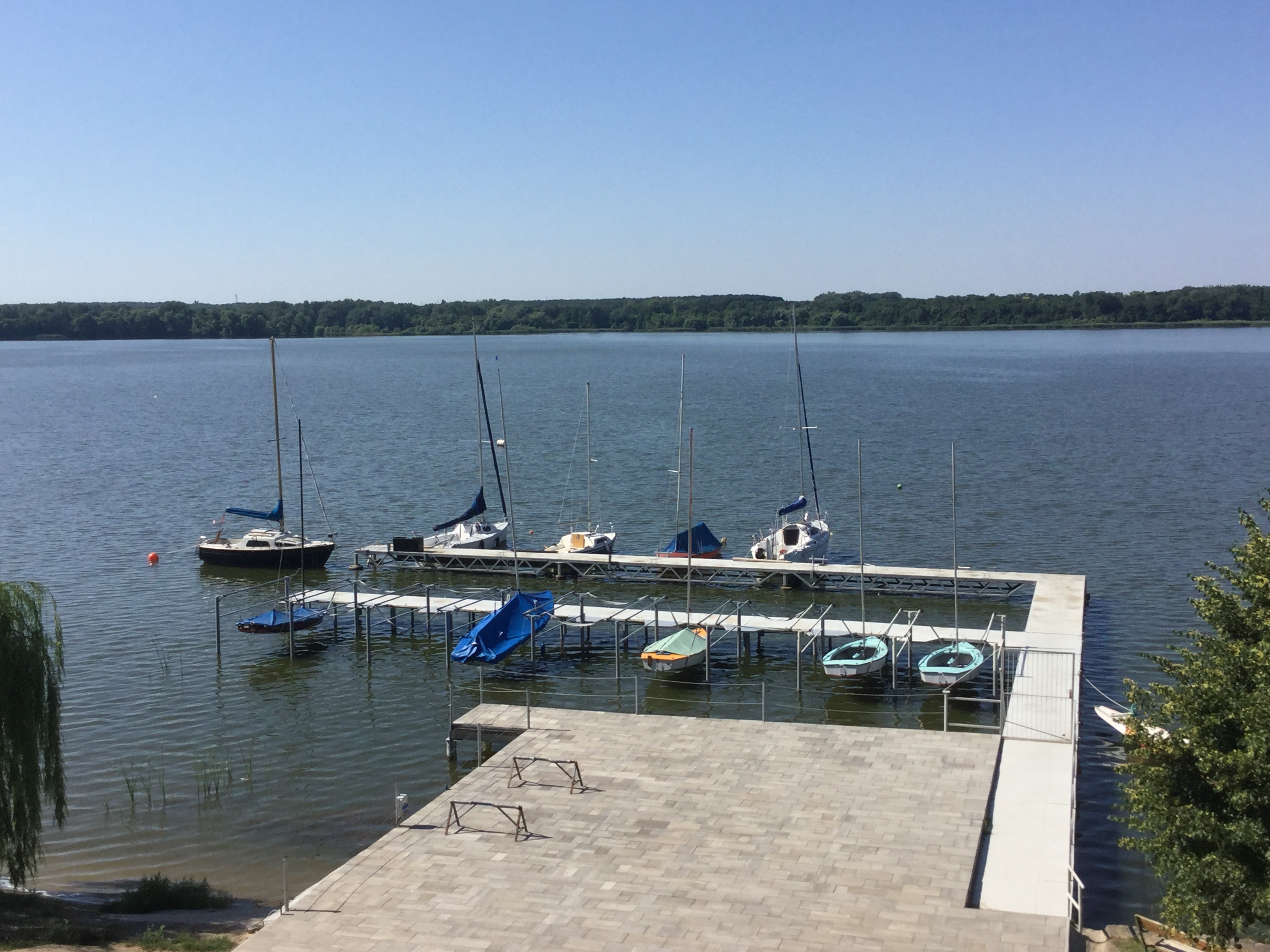3. Thematic workshop of stakeholders of the project SWARE

Minutes
Venue: New Kayak House Ecotourism Centre, Tópart Sétány 2., 2890 Tata, Hungary
Date: 15 June 2017 (Thursday)
Participants: Employees of Pons Danubii EGTC, representatives of member municipalities (according to the attendance list)
Summary:
The aim of the meeting was the presentation of realized activities of project SWARE to the attendees. The employees of Pons Danubii EGTC and tourism experts of PD region were greeted by Zoltán Bara, director of Pons Danubii and communication manager of the project. Subsequently, the director briefly presented the project with a presentation and then explained how important is the project for the region, as there are a lot of rivers and lakes in this area, and these wetlands are part of our everyday lives. He also said that every project partner had to designate a policy instrument that he wanted to develop. In our case, the plans in the SWARE project have to be put into practice as a project of the SKHU program.
Following the presentation of Zoltán Bara, one of the present experts, Miklós Michl, asked the director, whether EGTC has a specific idea about the implementation of the applications in the SKHU program. The director replied that there is no concrete project yet, but so far the EGTC has already submitted 5 projects to the SKHU program. Into Priority 1, bearing the name Culture and Tourism, 3 projects were submitted. These included one project about cycle developments (cycle paths, cycling services) and one project for the creation of thematic parks. Into Priority 2, one project was submitted for the construction of a cross-border bicycle rental system. These projects have been inspired by project SWARE, for example. Cycling projects were inspired by the opening conference in Hague, too.
This was followed by the report on the experience of the Irish Knowledge Exchange Session, presented by Zoltán Bara. The director said that the EGTC will be involved in 3 knowledge exchange sessions, so far only one has been organised in Ireland. There, we learned first of all the Irish examples, but the Dutch partners also had interesting presentations. After that, Zoltán introduced some Dutch examples and then talked about the Dutch water system, which operates democratically, as they have elected leaders. At the same time, they also have their water taxation and they finance their waterfront development with an active stakeholder involvement. Furthermore, the director also pointed out that water conservation could be carried out in the Netherlands by the Water Authorities, but they will realize their ideas from their own resources. In the Netherlands there are plenty of volunteers, which is also typical for other Western countries, so they run great developments from a minimal amount of money.
Subsequently, Zsófia Dolník-Domány, the project manager of project SWARE, talked about the eco-community center in Ireland. Then Zoltán Bara continued his report, who presented the water developments through an example of a particular city, which is located around a lake in the Netherlands. Zoltán said that this city had a lot of water developments, for example a kayak-canoe slalom track. Here we can also highlight the involvement of locals and the joint decision making, so we should think about how could the EGTC make a forum, where it could prepare concrete investment projects with the involvement of locals.
Then the head of the local TDM, Gábor Magyarics, asked the director, if these developments and stakeholder involvements work on a market or on a support basis. Zoltán replied that this varies, because somewhere it works on a market basis (eg the Netherlands - a pier was built with involvement of entrepreneurs), but in many countries (eg Ireland - PPN) there are serious state subsidies.
Subsequently, Zoltán Bara invited Pál Banai Tóth, mayor of town Moča, to report on his experiences about the event in Ireland. The mayor first introduced the town of Moča, and then explained that thanks to the history, the inhabitants of the Danube settlements were unfortunately deprived of the use of the Danube because it was the frontier. Then he pointed out the developments that were realized and planned in the region. After that he talked about his Irish experiences and mentioned the example of Lake Lough Derg and River Suir. He stressed that in Ireland there is a good unified and active stakeholder engagement, characterized by a unified planning and an efficient budget, and it would be much needed in Slovakia, but unfortunately this would be a lengthy process because of the excessive bureaucracy and the lack of land equalization.
After this, the director of PD EGTC outlined the main expected activities during the next phase of the project. At the same time, he invited the partners to the next stakeholder meeting. At the end of the meeting, participants had the opportunity to ask questions about the project, because the presentations were followed by an informal, interactive discussion and the event finally ended with lunch.



